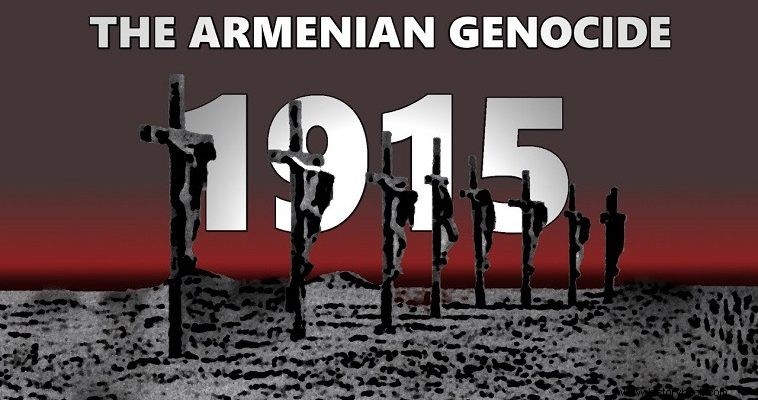
Armenian historian Suren Manoukian has documented through his research the German complicity in the Genocide of Christian Armenians during the Ottoman Empire period, about a hundred years ago. "We are grateful that Germany recognized it," says Manoukian, a researcher at the Genocide Museum in Armenia's capital, Yerevan. "But precisely this recognition of the Genocide, for which Germany was also responsible, has not yielded results to date".
Manoukian estimates that five years after the recognition of the Armenian Genocide by the German parliament, nothing has been done. "Every signed declaration must have consequences. And this does not mean financial compensations" adds the Armenian historian. "Investments could have been made that would have supported local businesses or created cultural institutions that would have strengthened Armenian society." The Armenian Genocide could also be taught in schools, he observes.
Historical responsibility
About 1.5 million Armenians died between 1915 and 1916 in the Ottoman Empire during World War I, according to historians' estimates. Turkey, a successor state of the Ottoman Empire, refuses to recognize the Genocide, that is, the deliberate extermination of Armenians by systematic methods of killing and ethnic cleansing. In the meantime, more and more countries are proceeding with the recognition of the Armenian Genocide. Recently Latvia, a member country of the EU and of course the USA, which also spoke of Genocide. As Manoukian reports, 30 countries have recognized the Armenian Genocide, with the number growing.
"The German Reich was a military ally of the Ottoman Empire" states the resolution of the German parliament and goes on to say that the German government at the time had been informed of the atrocities against Armenians, but remained inactive. The resolution also underlines Germany's responsibility as well as its commitment to keep the memory of the crimes against Armenians alive. In fact, at that time the Left Member of Parliament Gregor Guzi had spoken of "German complicity in the Genocide". Nothing has happened since then, Manoukian estimates.
Ecdemir:Armenia's reaction is justified
"Criticism from the side of Armenia is justified" also believes Cem Etcdemir, a German parliamentarian of Turkish origin and former head of the Greens. As he points out, the issue of the Armenian Genocide should be taught in schools, like other similar cases, such as the Rwandan Genocide or the Srebrenica Massacre in Bosnia-Herzegovina. But both the German government of Christian Democrats/Christian Socialists and the co-ruling Social Democrats avoid the issue of Armenia in order not to clash with Turkey.
"There is an unimaginable attention towards Tayyip Erdoğan" observes Ecdemir, while emphasizing that Germany in particular has a special responsibility, due to its close relationship with Turkey. It is worth noting that during the German parliament's vote on the resolution, Chancellor Angela Merkel and then Foreign Minister Frank-Walter Steinmeier were absent. The German government also stresses to Turkey that the resolution is not binding.
For the Armenians, however, its importance is enormous. "For us, any recognition is a step towards the restoration of historical justice," said Armenian Prime Minister Nikol Pashinyan. The recognition of the Genocide by Syria is also important for Armenia. As Manoukian notes:"The systematic killings and starvation marches led mainly to the Syrian desert, where the first concentration camps - precursors of the Nazi concentration camps - were created." Many in Yerevan now hope that the new government in Israel will recognize the Genocide - the first unthinkable crime against humanity of the 20th century, before the Holocaust.
SOURCE:DW
